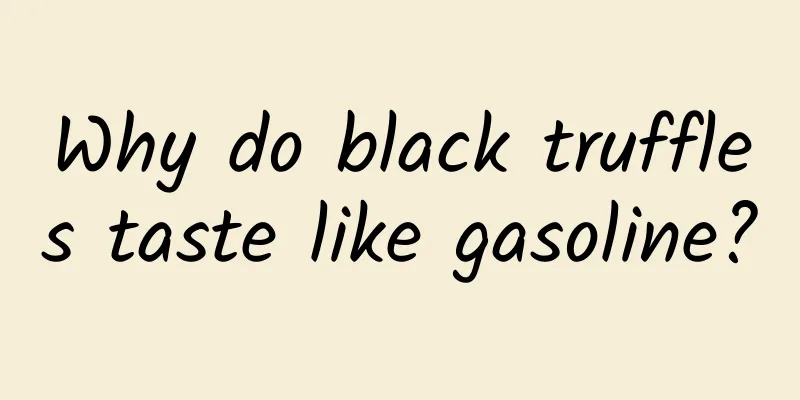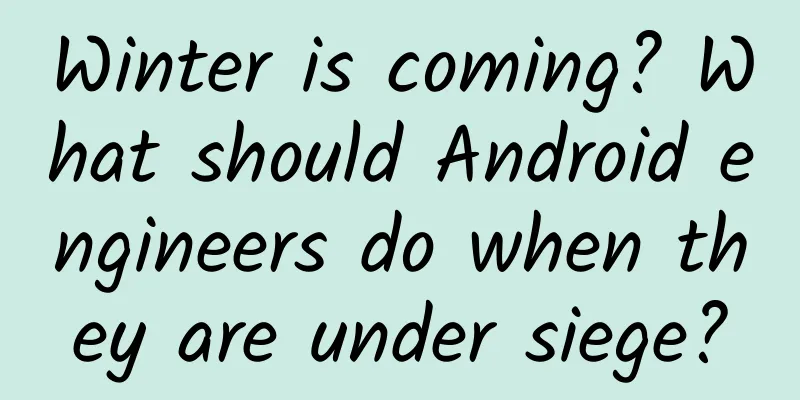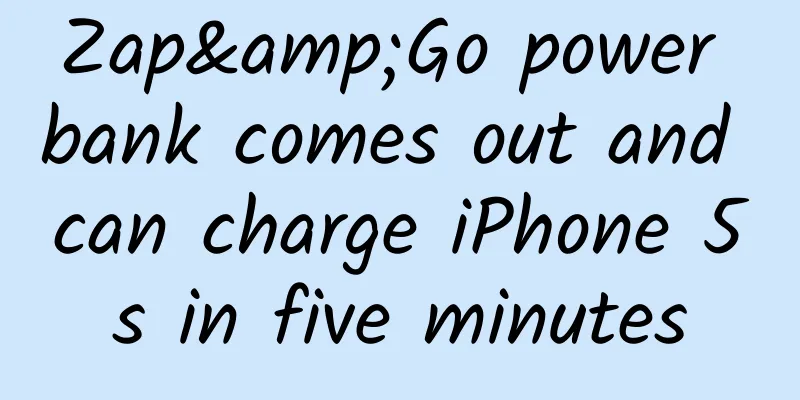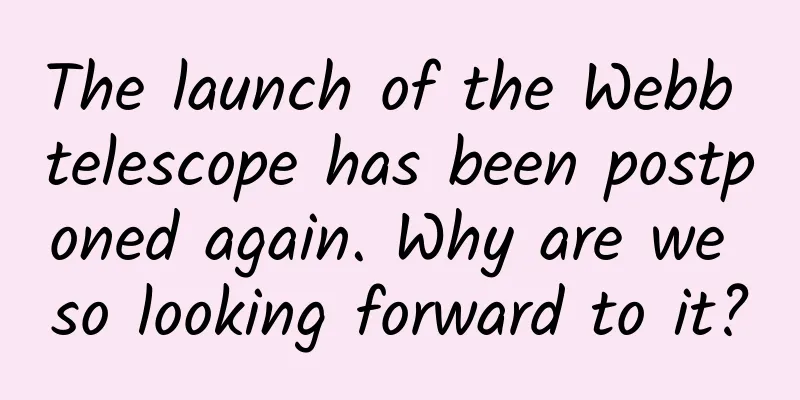We were chatting happily, why did we start arguing?
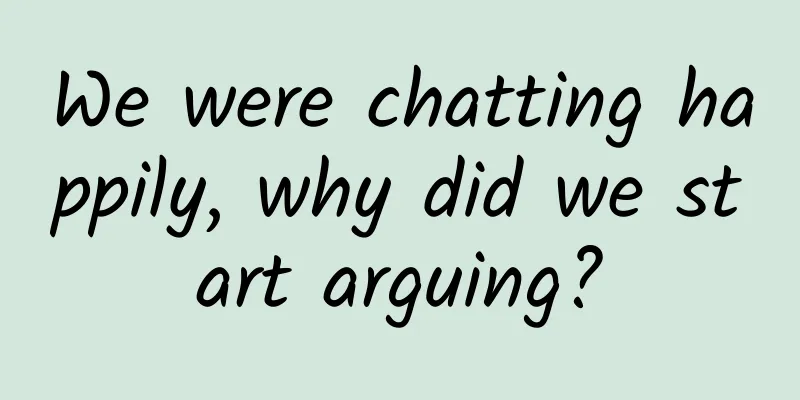
|
Produced by: Science Popularization China Produced by: Xiao Yi Producer: Computer Network Information Center, Chinese Academy of Sciences There is a joke on the Internet that makes fun of a couple quarreling. The scene is roughly like this: You and your partner have a disagreement about what to eat for dinner. During the discussion, you speak a little too loudly, so the following conversation turns out to be: Your partner: You yelled at me?! You: I didn’t… I just wanted to say… Your partner: Don’t you love me anymore? You: I didn’t... No, what does this have to do with whether I love you or not? Your partner: Stop talking, you just find me annoying now, right? You: Hey, could you please stop being so unreasonable? Your partner: I am being unreasonable?! How did you become like this now?! You: What happened to me?! … At this point, both parties have forgotten the starting point of the communication. Although this scenario is exaggerated, there are many examples of people quarreling or even acting impulsively due to emotions. Why do emotions come suddenly? How do they "control" our behavior? Image source: pexels What is "emotion" Psychologists define emotion as a complex pattern of physical and psychological changes, including physiological arousal (such as accelerated heart rate), external manifestations (such as facial expressions), cognitive processes, and unique subjective experiences. From the perspective of biological evolution, emotions can be divided into basic emotions and complex emotions. The so-called basic emotions are innate in both humans and animals, and they can be divided into positive emotions and negative emotions. Although different scholars have slightly different classifications of basic emotions, the emotions of joy, anger, sadness, fear, etc. are generally recognized. However, more often than not, the emotions we experience in life are compound emotions. Compound emotions are emotions that are a mixture of different basic emotions. Let’s go back to the example at the beginning of the article. When the conversation starts, the emotions of both parties may be relatively calm, but because one of them raises his voice slightly, things gradually get out of control. Why does a daily conversation turn into an inexplicable quarrel? In fact, people can experience a variety of different emotions in a small matter, which is a common way to open up emotions. Similar situations occur not only between lovers, but also between parents and children, friends, colleagues, etc. Emotional Decoding American psychologist Albert Ellis believes that the activating event A is only an indirect cause of the emotional and behavioral consequences C, while the direct cause is our belief B about the event. This is the ABC theory of emotions. In other words, it is not the event itself that triggers different emotional reactions, but our own perception of the event! Therefore, different people will have different perceptions of the same event, which is closely related to our own past experiences, personality traits, current emotional state, and stereotypes. Each of us is unique, so our perception and evaluation of events cannot be exactly the same. There is a famous saying: "There are a thousand Hamlets for a thousand readers", which is the truth. Since each of us has our own understanding of things, it is inevitable that "emotions" will play a role in communication between people, leading to misunderstandings between each other. Next, let’s use emotion theory to try to analyze the example at the beginning of the article. "You yelled at me?!" This was an important turning point in the whole incident. From this sentence on, the subsequent questions had deviated from the original topic of what to eat for dinner. What is the magic of this sentence? The key lies in how both parties understand the triggering event of "the volume becomes louder". One party may raise the volume just to highlight his or her own point of view during the discussion, but the other party may think that the partner is being "aggressive" to him or her, and believes that the partner is being "aggressive" to him or her because the partner no longer loves him or her. Therefore, when facing the same thing, different people will have different understandings, and naturally different emotional reactions will derive. Driven by various emotions, many conflicts in our communication can easily evolve into "emotional quarrels" in the end, and the original event will no longer matter... How to deal with negative emotions during conflict Contradictions and conflicts in interpersonal communication are inevitable, but whether they will cause harm depends on our behavioral patterns in dealing with emotions and conflicts. When facing negative emotions in conflicts, we can find the real answers from the following questions: What emotion am I feeling right now? (Explore our emotional outcomes, is it anger, fear, terror, or sadness?) How do I view this? (Explore our perception of events) Is the truth of the matter really the same as I think? (To test whether our understanding of the event is correct) In addition to my current explanation, are there other possibilities? (This step is critical. It is the first step to explore yourself and the truth. If you think there are other possibilities, it will be easier for you to communicate with the other party.) How does the other party view this incident? (Explore the other party's cognition and understanding of the incident) Did he misunderstand what I said? (Find the root cause of the conflict and deal with your emotions to better solve the problem) When you have a conflict with others about something, you might as well use the above questions to explore and understand your own and the other person's thoughts. When you can see each other's emotions and the cognition behind them, your communication can be refocused on the problem itself, and communication will be smoother and more effective. Image source: pexels In short, when facing negative emotions and interpersonal conflicts, we need to understand the cognition behind each other's emotions with kindness. In this way, we can not only understand ourselves and each other's emotions more clearly, but also adopt a more positive communication mode. In the long run, negative emotions and interpersonal conflicts may lead to a deeper understanding and connection between each other. References: Gerrig, & Richard J. (2011). Psychology and life / 18th ed. Posts and Telecommunications Press. Ellis, A. (1996). Reason and Emotion in Psychotherapy: A Comprehen-Sive Method of Treating Human Distrubans. Citadel. |
<<: How can gene editing make rice safe, delicious and healthy?
>>: Dating requires IQ, staying up late will make people stupid
Recommend
How many profound scientific truths are contained in one meter and one second? It may subvert your imagination
We live in a three-dimensional world, that is, ev...
A must-have for goddesses - instant training of pelvic floor muscles
A must-have for goddesses - a quick-kill training...
BYD's blade battery receives order from Hyundai Motor and is expected to be supplied overseas next year
According to media reports citing insiders, BYD&#...
Chen Wen's top private equity trading skills secret training camp: call auction + time-sharing decision-making
Chen Wen's top private equity trading skills ...
There is no vacuum in the universe, so what exactly is vacuum?
The word "vacuum" is not unfamiliar to ...
Li Auto Financial Report: In 2022, Li Auto delivered a total of 133,246 vehicles with a gross profit of 19.1%
What kind of financial report did Ideal Auto, the...
[Smart Farmers] Don’t panic when typhoons hit your vegetable fields! See how to reduce and remedy the situation
[Smart Farmers] Don’t panic when typhoons hit you...
Polaris-Ahui short video operation practice class, 0-1 system teaching, 7-15 days independent operation account
Polaris-Ahui short video operation practice class...
He built a robotic arm to cut his hair, and...
As the title suggests, someone built a robotic ar...
Oil-absorbing paper review: It can absorb oil and costs 1 yuan per piece. Would you buy it?
When I was browsing Tik Tok, I always saw some vi...
Liu Shuwei released a report: LeTV's model is difficult to sustain
I started analyzing LeTV (stock code: 300104) in ...
"Fragmented sleep" has become a hot topic, and doctors remind you: sleeping may be the same as not sleeping
How's your sleep? In recent days, there have ...
How big is the largest earthquake in human history? What is the limit of earthquakes?
The China Earthquake Networks Center officially d...
Data Thief: How were Xiaomi and Pinduoduo’s e-commerce data sold to Wall Street?
Just before Xiaomi went public, a Chinese fund ma...
How to make money with the overseas version of TikTok, overseas TikTok + Amazon practical training camp
Domestic Douyin merchants have been pushed to the...



